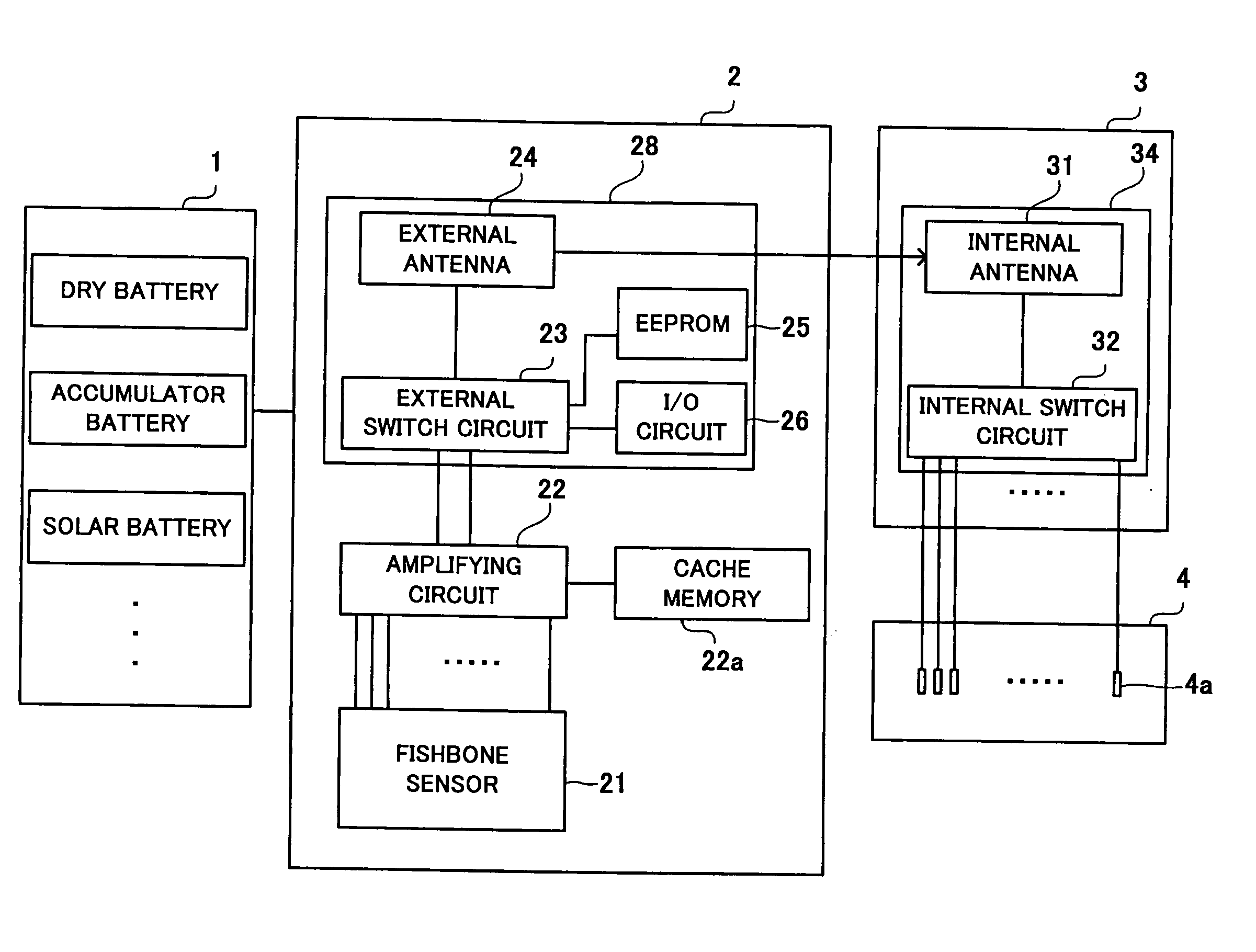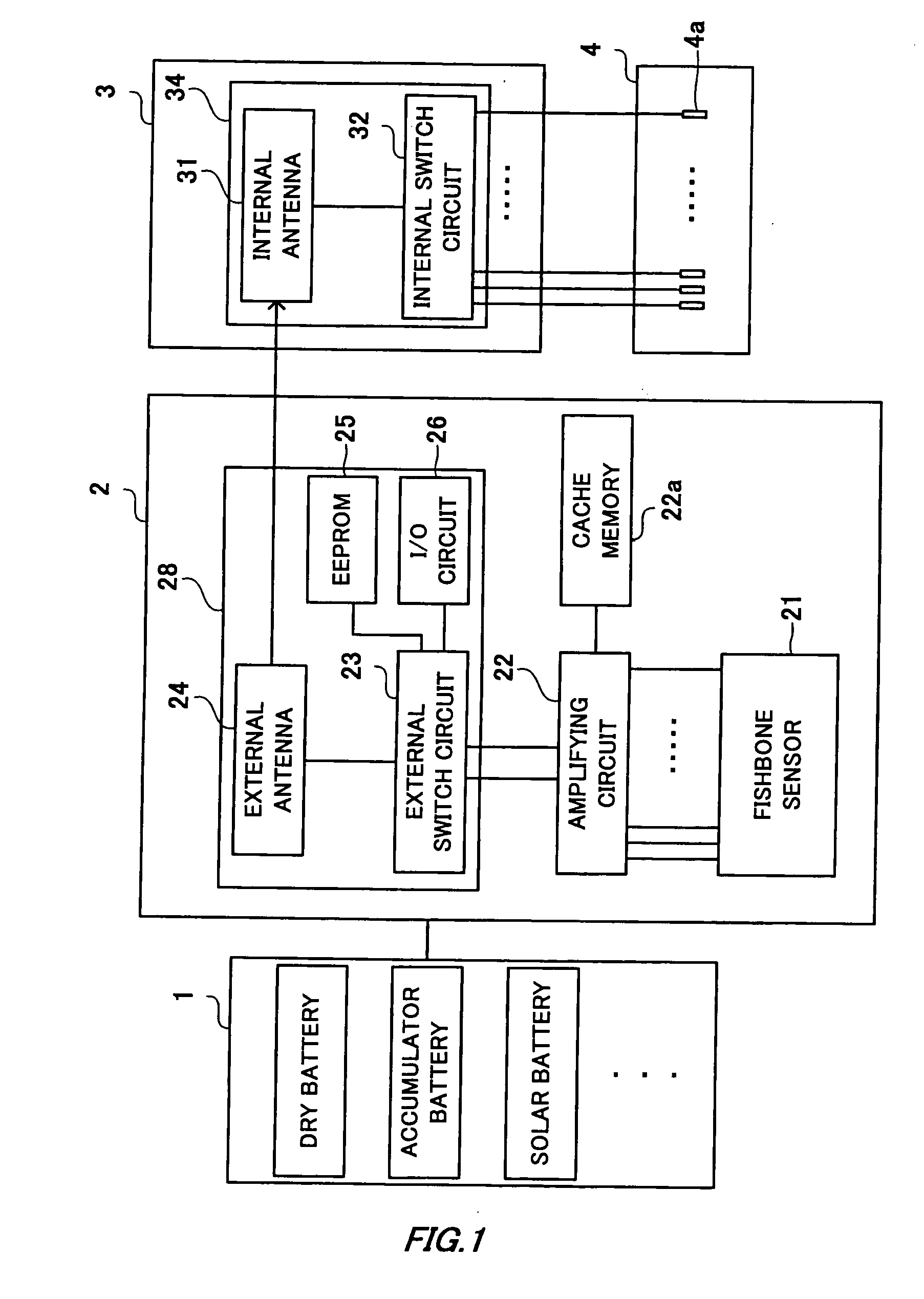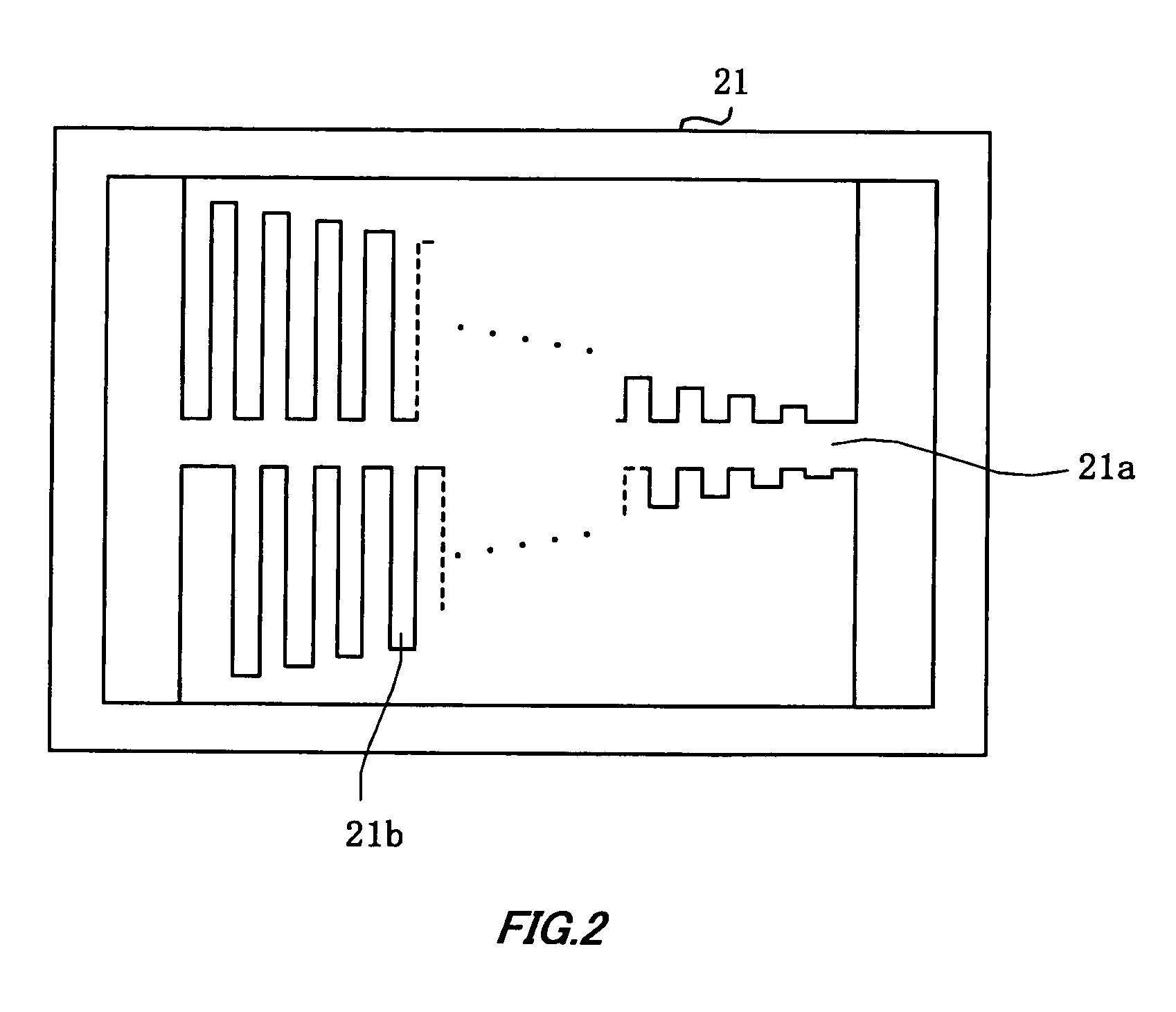Artifical auris interna
a technology of artificial ear and auris, which is applied in the field of artificial ear, can solve the problems of real-time sound processing by a dsp, inability to achieve both a high resolution and a low power consumption simultaneously, and achieve the effect of low power consumption and high resolution simultaneously
- Summary
- Abstract
- Description
- Claims
- Application Information
AI Technical Summary
Benefits of technology
Problems solved by technology
Method used
Image
Examples
Embodiment Construction
[0028] An artificial ear according to an embodiment of the present invention will be explained below with reference to the drawings.
[0029] The artificial ear according to the embodiment of the present invention comprises a power source unit 1, a sound processing unit 2, a reception unit 3, and an electrode section 4, as shown in FIG. 1.
[0030] The power source unit 1 comprises at least one of a dry battery, an accumulator battery, a solar battery, a fuel battery, and a thermal power generator, etc. as shown in FIG. 1, and supplies power to the sound processing unit 2.
[0031] The sound processing unit 2 is set near the external ear by, for example, being caught on the auricle or in the earhole like an earphone. The sound processing unit 2 works by the power supplied from the power source unit 1, and converts a sound having a predetermined frequency, among sounds occurring in the surroundings, into an electric signal. The sound processing unit 2 sends the converted electric signal to...
PUM
 Login to View More
Login to View More Abstract
Description
Claims
Application Information
 Login to View More
Login to View More - R&D
- Intellectual Property
- Life Sciences
- Materials
- Tech Scout
- Unparalleled Data Quality
- Higher Quality Content
- 60% Fewer Hallucinations
Browse by: Latest US Patents, China's latest patents, Technical Efficacy Thesaurus, Application Domain, Technology Topic, Popular Technical Reports.
© 2025 PatSnap. All rights reserved.Legal|Privacy policy|Modern Slavery Act Transparency Statement|Sitemap|About US| Contact US: help@patsnap.com



